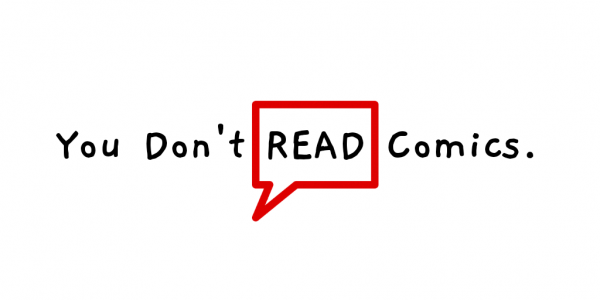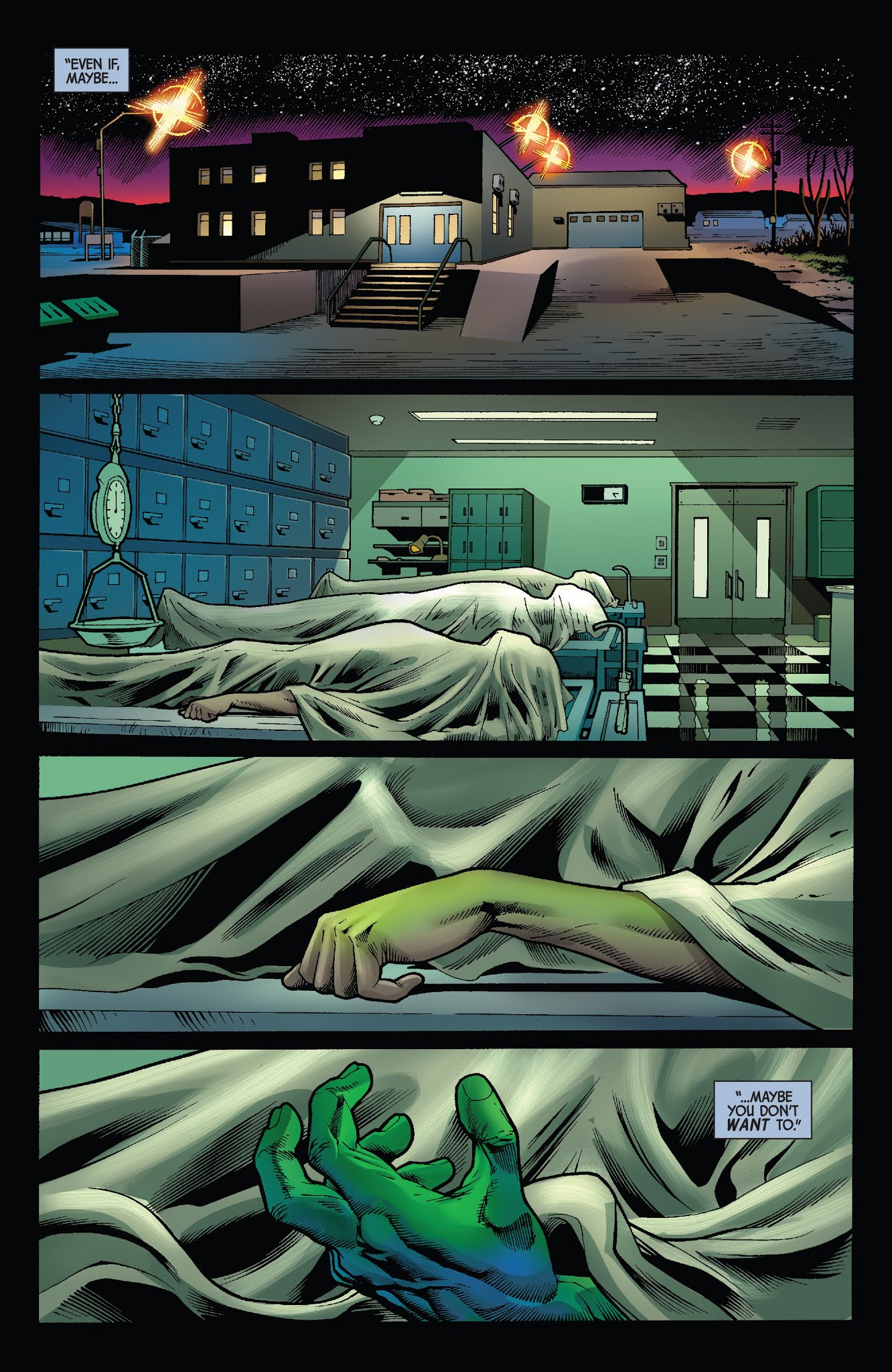The Immortal Hulk #1 // Review
“Bruce Banner was dead. Bruce Banner can die. But then...there’s that other guy.” That line, spoken by a detective in the first issue of The Immortal Hulk, perfectly sums up the intentions of this book. With Al Ewing writing, Joe Bennett on pencils, Ruy Jose on inks, and Paul Mounts on colors, this creative team aims to give readers a Hulk that disturbs the audience and leaves them questioning whether or not he’s the good guy. This has been described as a horror book by Marvel, but it more aptly fits the mold of a psychological thriller. And isn’t that what’s at the heart of any good Hulk story? A man turns into a monster, the monster does bad things, the man wakes up to those bad things, and finally, the man has to confront the fact that he and the monster are the same person...that he is ultimately responsible, whether he remembers doing the bad things, or not. This is the story of Bruce Banner, and it is flawlessly told in this one-and-done issue of his new series.
Al Ewing, mostly known for his humorous Avengers books at Marvel, takes a sharp turn into darker material with this book. If you’re a fan of his, this will most definitely not be what you’re used to. It is still brilliant storytelling, however. No doubt, some of his finest work yet at Marvel. Not only is it a great character piece on Banner and the Hulk, it’s a textbook example of what a first issue of any comic should be: a one-shot opening story that establishes what this book is going to be about and its general tone, while drawing in the reader’s interest. The issue is a quick read, and a simple tale of the Hulk getting revenge after a convenient store robbery gone wrong, but it’s setting up a complex story that cuts deep into Banner and his troubled psyche.
Speaking of Banner’s troubled psyche, Ewing is delivering what seems to be an entirely new iteration of the Hulk. We’ve seen Hulks that are cunning, Hulks that like to talk, and Hulks that enjoy being mean, but we’ve never quite seen it like this. This is a Hulk that seems to like hurting people. Not only that, but he also likes to scare them with his words before he does it. It’s almost like reading the Hulk via Hannibal Lecter,and that’s definitely by design, because Ewing avoids showing a lot of violence on-panel, choosing to focus instead on the bone-chilling new personality of the Hulk coupled with equally chilling narration that questions what people see in a mirror vs what they really are. Ewing has a firm grasp on this character, and yes, it is different in some ways than the typical take on the Hulk, but it also has all of the classic elements that a longtime fan will want, too.
Joe Bennett, simply put, does a fantastic job rendering the new Hulk. Like Ewing, he delivers on all of the classic things you want to see in old Jade Jaws, but Bennett also delivers something new and deeply creepy. His take has an expressive face that is chock full of intelligence and perverse enjoyment of hurting people, highlighted by his toothy grin, arched eyebrows, and small, piercing eyes. Bennett wants you to be afraid of this new Hulk when you look him in the face, and he succeeds. Similarly, the inks of Ruy Jose and colors of Paul Mounts lend to the overall darker tone of this book, spreading an unsettling, eerie feeling throughout the issue. Hopefully, Marvel can keep this art team together, because it seems to be the perfect marriage between visuals and writing for Hulk.
Overall, Ewing is bringing us a different take on a classic character, but it’s not at all out of line from what the Hulk has been established as in the past. Banner and the Hulk have always shifted between different personalities, some darker than others, so a new take on the classic character is something the older fans should be used to. As the title of the book suggests, there is a new wrinkle of the Hulk being unkillable, but again, that is not so wildly different from what has been established in the past. Banner has talked about trying to kill himself before, and being unable to make it happen, plus Peter David’s classic “Hulk: The End” explored the idea that Hulk might just be the last living thing on the planet some day, so Ewing wanting to explore that notion shouldn’t put any Hulk fans off. If you’re on the fence about trying this book, keep in mind, the creative team isn’t reinventing the wheel, here. They’re just showing it from a different angle.









